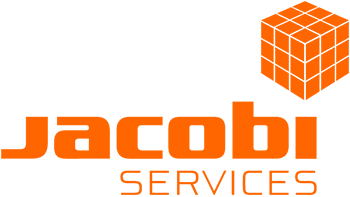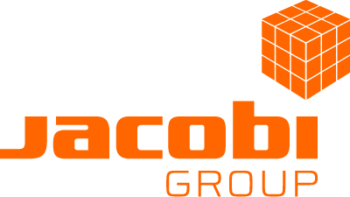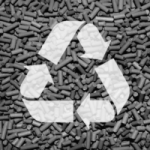Liquid Sugar Solutions
Liquid sugar solutions consist of pure sucrose dissolved in water and are, therefore, always clear and light-coloured after treatment. The advantage of liquid sugar compared to crystal sugar is that the sucrose is already dissolved when it arrives at the end user. This means the end user needs no investment in equipment for dissolving, filtering and pasteurisation of the resulting sugar syrup.
Liquid sugars are produced from beet or cane sugar. Although they have already been through a purification process, they can still contain taste and/or odour compounds, due to storage and transportation.
Activated carbon has been used in the production of liquid sugars for several decades.
Powder activated carbon is often used in the liquid sugar production process to produce colourless and transparent liquid sucrose solutions with a neutral, sweet taste, free from any off flavours.
Granular activated carbon (GAC) is can also be used in mobile adsorbers in the production of liquid sugar solutions.
Converting from powder activated carbon to granular activated carbon has several advantages for the user:
- A reduction of the activated carbon consumption (Granular activated carbon (GAC) consumption is usually less than 30% of powdered activated carbon (PAC) consumption)
- The granular activated carbon (GAC) loading is higher compared to the usage of powdered activated carbon (PAC)
- No activated carbon overdosing by operators to avoid off spec products
- Granular activated carbon (GAC) deals better with process fluctuations
- Lower product (sugar) losses:
- The sweetening off process of granular activated carbon (GAC) is more efficient compared to powdered activated carbon (PAC)
- Lower activated carbon consumption means a lower volume to be sweetened off
- Sustainability:
- Granular activated carbon (GAC) can be recycled by thermal reactivation
- Reactivation has more than five times lower CO₂ emissions compared to the production of virgin activated carbon
- Lower granular activated carbon (GAC) consumption leads to lower CO₂ emissions during its production compared to powdered activated carbon (PAC)
- Lower handling costs
- Lower maintenance costs
LIQUID SUGAR SOLUTIONS: MOBILE FILTERS
AquaFlow™
The AquaFlow™ V2 mobile adsorbers are designed and built for use in the purification of liquid sugar. The filtration unit is a combined transport vessel and adsorption system delivered, prefilled with selected adsorbent media, to ensure cost effective purification results. The granular activated carbon arrives in a closed container ready for use and so the plant operators do not come into contact with either the fresh or saturated product.
LIQUID SUGAR SOLUTIONS: SOLUTIONS
Auxiliary equipment and additional services
In additional to mobile filters and different media, Jacobi Services also offers auxiliary equipment and addition services, including:
- A series of removable insulation jackets with electrical heat tracing to maintain the temperature and to protect operators when the AquaFlow™ mobile filters are operated at higher temperature.
- Isotherm testing with the user in order to compare the powdered activated carbon with granular activated carbon.
Recycling, Energy Recovery or Disposal Services
Jacobi Services offers customised reactivation ReSorb™ Solo where the spent carbon storage, reactivation and reactivated carbon conditioning are strictly separated from other customers to ensure that a customer gets their own activated carbon back.
Jacobi Services also offers spent carbon take back and virgin carbon delivery when the annual spent activated volume is too low for customised reactivation.
LIQUID SUGAR SOLUTIONS: PRODUCTS
ColorSorb™ H620
ColorSorb™ H620 is a high purity, granular activated carbon, that is effective for decolourising a wide range of liquids, including foodstuffs and industrial process streams. The high mesoporosity also allows the effective removal of colour bodies and complex organic molecules and provides an excellent adsorption capacity. An important feature of this material is the supplementary washing process applied during production to reduce the level of soluble inorganics that may cause issues in acidic treatment applications. The product meets the requirements of the Food Chemical Codex. This product can be recycled by thermal reactivation, an environmentally responsible method that helps to reduce atmospheric CO₂ emissions and contributes to the sustainable use of the world’s resources.
LIQUID SUGAR SOLUTIONS: ION EXCHANGE RESINS
Resinex™
Resinex™ TPS-2300 and TPS-2308 are macroporous styrenic strong base anion type 1 used for liquid sucrose decolourisation. They can be combined with Resinex™ TPS-2400, a macroporous acrylic strong base. Depending on the inlet ICU value, various layouts and vessel arrangements are possible. A double pass system can remove up to 90% of the colour. All Jacobi Resins TPS products comply with the (2004)3 requirements on ion exchange and adsorbent resins used in the processing of foodstuffs, as well as with the FDA regulations found in 21 C.F.R. §173.25 for their use in the purification of foods and potable water.
If low ash content is required, liquid sucrose can be demineralised by using Resinex™ KWH, a weak acid cation, and Resinex™ TPS-2207, a strong base anion. The resins can operate in single beds or mixed beds. The mixed bed option requires special particle size distribution of resins to ensure perfect layer separation before chemical regeneration. Mixed bed column has the advantage to limit the sucrose inversion during demineralisation since the anionic and cationic beads mixture prevent sucrose to be in acidic conditions.
Liquid invert sugar may be of interest in the beverage industry because it has a higher Brix value than that of the initial liquid sucrose, therefore, it contains less water which increases transport cost. Moreover, liquid invert sugar is microbiologically more stable than liquid sucrose. Sucrose inversion can be catalysed by using strong acid heterogenous catalyst Resinex™ TPS-1106 H. Prior to inversion, the liquor has to be decationised to prevent catalyst resin activity loss. Decationisation can be achieved using Resinex™ TPS-1000 H. Finally, the liquid invert sugar solution is deacidified with a weak base anion Resinex™ TPS-2019.
GET IN TOUCH
Fill out the short form below and our team will be in touch.
*Indicates a mandatory field.






